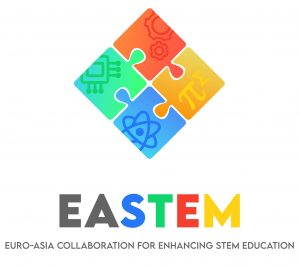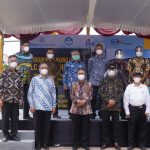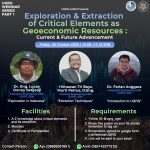Euro-Asia Collaboration for Enhancing STEM (EASTEM) Education is an Erasmus+ capacity building project (Key Action 2) running from 2019–2022.

STEM is an acronym for Science, Technology, Engineering, and Mathematics. STEM education is an interdisciplinary approach to learning that provides hands-on practice and experience to students by stimulating their critical thinking, problem solving, and collaborative skills. The project aims to ensure that STEM education provides students with competencies relevant to the labour market, thus improving their employability. By exchanging best practices among European and Asian universities, each partner university can find inspiration to enhance STEM education at their institutions. This network of mutual exchange and learning will further the cooperation between EASTEM partners beyond the project’s lifetime.
EASTEM is formed by a consortium of 2 associate partners (Ministry of Education and Training, Vietnam and Vietnam Electronics Industries Association) and 13 universities from :
Europe :
Vietnam :
- Ho Chi Minh City University of Technology and Education
- Hue University of Sciences
- Hung Yen University of Technology and Education
Thailand
Indonesia
There are three EASTEM Objectives: Training, Connecting, Integrating  Work Packages
Work Packages
The main components of the EASTEM project are divided into three groups: Work Package 2, 3, and 4. This website will focus on Work Package 3.
Work Package 2 is focused on the development of Train the Trainers (ToT) courses for university lecturers in order to give them the tools to use student-centred learning approaches in their teaching. These teaching approaches are then spread to more lecturers in a cascade format. Lecturers who have participated in the ToT courses will also apply what they have learnt in their regular teaching with students.
Work Package 3 helps to sustain the project by setting up STEM centres at partner universities. The centres will continue to conduct the ToT courses for university lecturers but will also organise activities engaging with external stakeholders, such as local high schools and businesses. In this way, the centres have the potential to function as hubs for discussions on STEM education in the local community. Supporting Asian partner universities to establish and run STEM education centers will ensure the sustainability and increase the visibility of student-centered STEM activities. These centres will anchor STEM activities within the university structure and serve as focal points for each university’s STEM initiatives. By engaging both university students and external partners such as local high schools and corporate partners in STEM centre activities, the centers will have the potential to develop into hubs for STEM education and learning in each city or region. UGM EASTEM plan can be seen in the image below.
 In Work Package 4, professional competencies and input from industry partners are integrated in curricula, study programmes and university strategies. EASTEM aims to secure the support from university leadership at partner institutions to ensure that lasting change takes place. (More about EASTEM)
In Work Package 4, professional competencies and input from industry partners are integrated in curricula, study programmes and university strategies. EASTEM aims to secure the support from university leadership at partner institutions to ensure that lasting change takes place. (More about EASTEM) 




Follow Us!